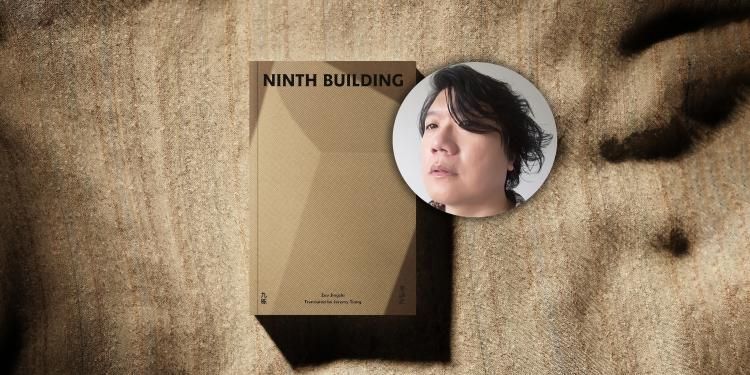
Zou Jingzhi interview: ‘I wrote this book to let go of my childhood’
Longlisted for the International Booker Prize 2023, author Zou Jingzhi talks about the inspiration behind Ninth Building in an exclusive interview

With Ninth Building longlisted for the International Booker Prize 2023, Jeremy Tiang talks about the decade he spent translating Zou Jingzhi’s book, and the books that made him the translator he is today
Read interviews with all of the longlisted authors and translators here.
How does it feel to be longlisted for the International Booker Prize 2023 - an award which recognises the art of translation in such a way that the translators and author share the prize money equally should they win - and what would winning the prize mean to you?
It’s delightful to be recognised in this way, and I’m glad that the longlisted translators get to share the spotlight with the authors — though to be honest, I try not to think too much about awards in case it turns my head.
How long did it take to translate the book, and what does your working process look like? Do you read the book multiple times first? Do you translate it in the order it’s written?
I first encountered Zou Jingzhi’s book in 2012, and spent the best part of a decade translating it - because it was composed of vignettes, it was easy to do piecemeal, and I initially jumped around translating whatever I felt inspired to, before going back and filling in the gaps. I read the book multiple times in the course of this process, and of course translating is itself a form of deep reading.
What was the experience of working with the author like? How closely did you work together? Was it a very collaborative process? Were there any surprising moments during your collaboration, or joyful moments, or challenges?
I was introduced to Zou Jingzhi by another writer I work with, Zhang Yueran. She announced one day that she had a friend she wanted me to meet, and drove me to his home on the outskirts of Beijing. There, we admired Mr Zou’s calligraphy while he told us all about his life during the Cultural Revolution. He also presented me with a copy of Ninth Building. That was the only time I’ve met him in person, and though we’ve stayed in touch, we haven’t talked very much about the book. His voice is so clear, I haven’t felt the need to ask him any questions - the English came to me very intuitively. Perhaps this is the best kind of collaboration, one where we give each other all the space we need.
Jeremy Tiang
The works of fiction that most inspired my career are the ones that affected me so profoundly I wanted to burrow inside them
Aside from the book, what other writing did you draw inspiration from for your translation?
As it happens, I also translated Zhang Yueran’s novel COCOON around the same time. She is a generation younger than Mr Zou, and her novel deals with the ways in which the Cultural Revolution has affected those who were born after it ended. Though this was not planned, translating these two books in such close proximity put them in conversation with each other.
What was your path to becoming a translator of literary fiction? What would you say to someone who is considering such a career for themselves?
I’m a writer who grew up bilingual, and I have no other marketable skills - I think this was always where I was going to end up. I think everyone should translate, whether or not they end up doing it as a career - it is a wonderful experience.
Why do you feel it’s important for us to celebrate translated fiction?
The world is vast, and it would be such a pity if we only ever read fiction in the few languages we understand. Translated fiction is vital to encountering writing we would otherwise never know.
If you had to choose three works of fiction that have inspired your career the most, what would they be and why?
This is going to sound terribly self-serving, but the works of fiction that most inspired my career are the ones that affected me so profoundly I wanted to burrow inside them, and the only way I knew how to do that was by translating them myself. Yeng Pway Ngon’s Unrest, Lo Yi-Chin’s Faraway and Yan Ge’s Strange Beasts of China made me the translator I am today.
Zou Jingzhi

